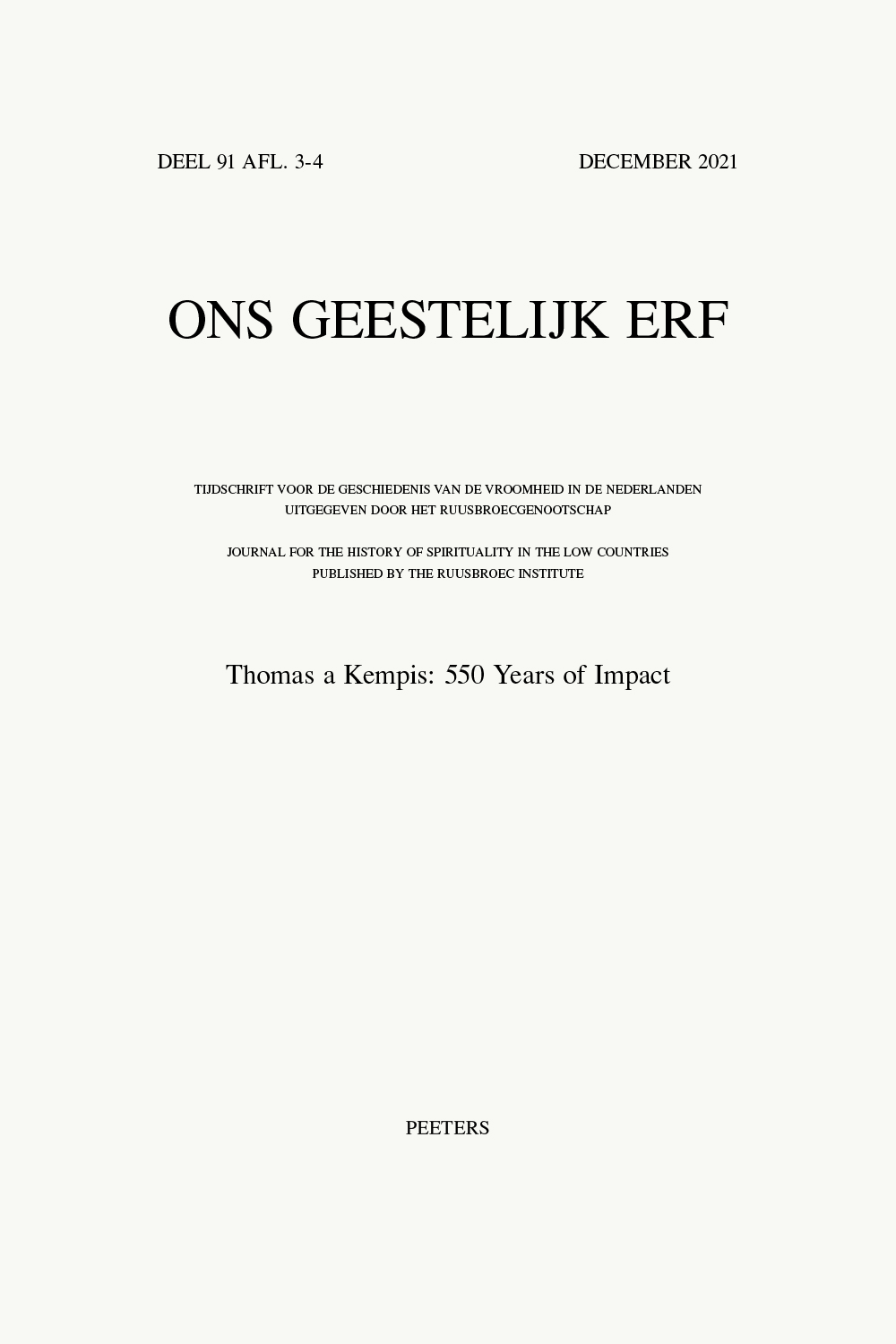 previous article in this issue previous article in this issue | next article in this issue  |

Preview first page |
Document Details : Title: Bedachtzame vroomheid? Subtitle: De mystieke en paramystieke begenadiging in de biografieën van de moderne devoten Author(s): HEENE, Katrien Journal: Ons Geestelijk Erf Volume: 83 Issue: 4 Date: December 2012 Pages: 324-354 DOI: 10.2143/OGE.83.4.2959687 Abstract : In previous research concerning mysticism, the modern devotionalists are said to have had a sceptical and pragmatical attitude towards mystical experiences. It is also stressed that mystical culture was being pushed back from the second half of the 15th century onwards. The references to mysticism in the books of sisters are limited too and mainly concern paramystical phenomena such as visions as well as appearances of dead persons. This article expounds on mystical experiences in fifteen Latin and vernacular collections of biographies of modern devotionalists. It confirms as well as nuances the results mentioned above. Generally spoken, active asceticism indeed appears to be more important than contemplative mysticism in the collections under scrutiny. Yet the biographers regularly describe all types of mystical experiences, which are seen as a possible divine reward for a humble and pious life. Revelations as well as ecstasies and union are depicted as something natural, be it that all of them never make up the essence of the exemplarity or holiness of the person described. The mention of mysticism seems to be influenced by the biographer’s intended audience as well as by the specific period in which he or she wrote: in the elder Latin texts (first half of the 15th century) mystical experiences are in particular connected with canons. In the younger Latin biographies and in the vernacular books of sisters (second half of the 15th century-beginning of the 16th century) however, mysticism is a matter involving in particular sisters of the common life and choir sisters. This conclusion seems to imply that, at least in the biographies of the modern devotionalists, mystical culture is becoming rather gender specific than being pushed back. |
|


